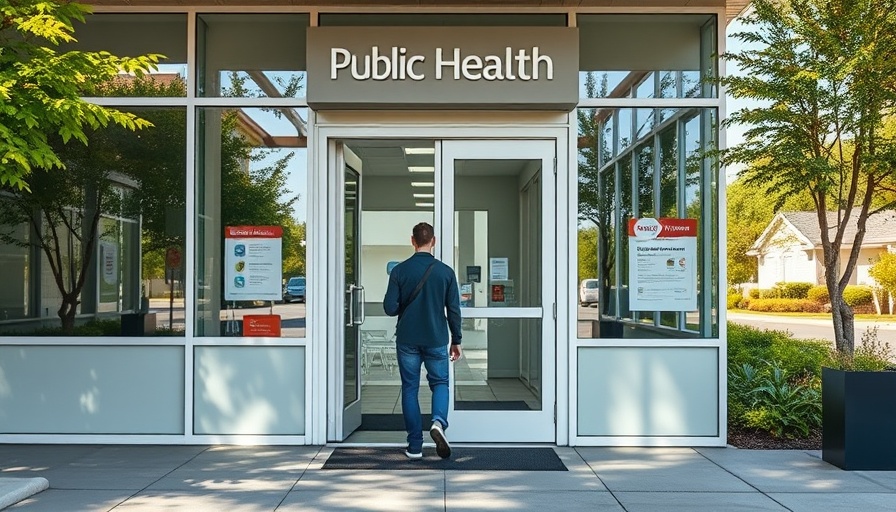
Why the Decline in Measles Vaccination Matters
The recent decline in childhood vaccination rates across the United States poses a significant public health challenge. Vaccination rates for measles, mumps, and rubella (MMR) have dropped, falling from nearly 94% to about 91% from the 2017-2018 academic year to the 2023-2024 period. This decline threatens herd immunity, which typically requires around 95% coverage to effectively prevent outbreaks. As Lauren Gardner, a researcher at Johns Hopkins University emphasizes, understanding the localized patterns of vaccination is crucial to preventing measles outbreaks, especially in lower vaccination areas.
Historical Context: The Consequences of Past Outbreaks
Historically, situations similar to this have led to major health crises. Before the measles vaccine was developed, the disease resulted in over 2.6 million deaths annually worldwide. The impact of inadequate vaccination coverage can be seen in significant outbreaks. For instance, a notable measles outbreak in the U.S. in 2014 stemmed from imported cases that spread among under-vaccinated communities, resulting in almost 700 cases. The resurgence of such diseases highlights the critical importance of maintaining high vaccination rates.
The Social Connection: Why Your Community Needs Vaccinations
Community health significantly relies on collective responsibility regarding vaccinations. When individuals opt out of vaccinations due to misinformation or fear, they put the entire community at risk. Vaccination not only protects individuals but also shields those unable to receive vaccines due to medical reasons. The social contract of vaccination - understanding that each individual's choice impacts the health of others - is vital for communal wellbeing.
Current Trends: Understanding the Statistics Behind the Decline
According to the Centers for Disease Control and Prevention (CDC), confirmed cases of measles have surged, with 1,088 cases reported in 2023, predominantly among unvaccinated individuals. Research highlights that 96% of these cases involved those not vaccinated or whose status was unknown. With only four of the 33 states studied reporting increases in MMR vaccination rates, the findings underline a concerning negative trend that could result in further outbreaks if not addressed urgently.
Practical Insights: Steps to Improve Vaccination Rates
Addressing declining vaccination rates requires multifaceted strategies. Here are actionable steps communities can take to foster a culture of vaccination:
- Education and Outreach: Initiatives to educate parents about the importance of vaccines are essential. Workshops, social media campaigns, and informational sessions at local community health centers can help dispel common myths.
- Accessibility: Make the MMR vaccine easily accessible. Ensure that local health centers offer the vaccine during convenient hours and consider local vaccination drives.
- Collaboration: Local health organizations should partner with schools and childcare facilities to gather data and understand vaccination trends, ensuring coordinated efforts to boost immunization rates.
Local vs. Global Perspectives on Vaccination
The issue of declining vaccination rates is not isolated to the U.S.; it reflects a global trend exacerbated by the COVID-19 pandemic. Countries worldwide are struggling with similar challenges. In some regions, vaccine misinformation and hesitancy are rampant, leading to reduced coverage. By learning from international efforts to improve vaccination rates, American communities can adopt successful strategies formulated in diverse contexts.
Conclusion: Take Action to Protect Your Community
The health of our communities depends on our willingness to participate in vaccination programs that protect against diseases like measles. Understanding the role each individual plays in this critical public health endeavor can motivate positive changes. Attend local health and wellness events to gain insights and support vaccination initiatives in your area. By taking proactive steps today, we can ensure a healthier future for all.
 Add Row
Add Row  Add
Add 




 Add Row
Add Row  Add
Add 


Write A Comment